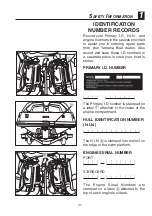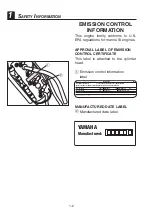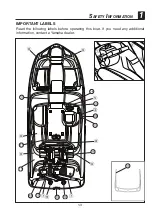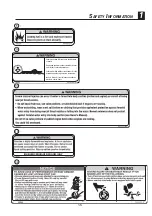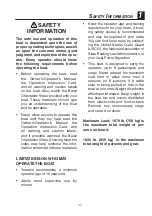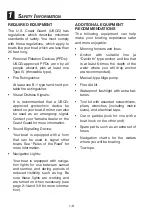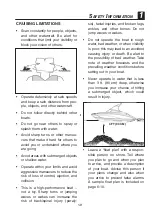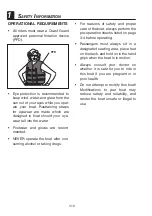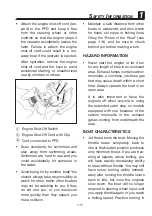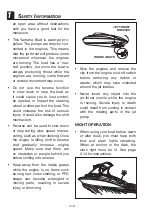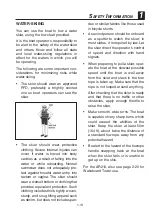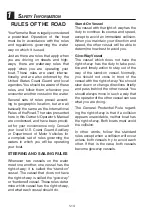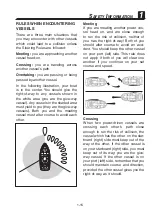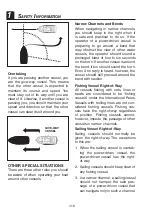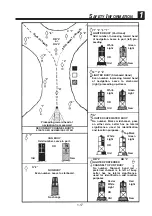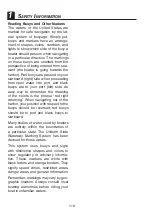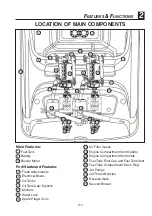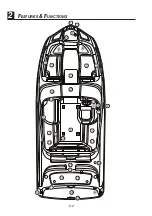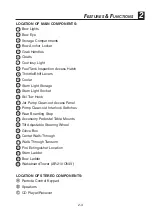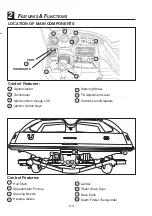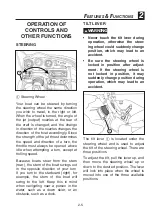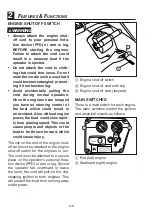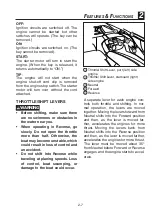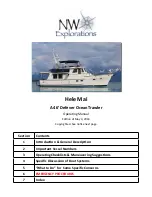
S
AFETY
I
NFORMATION
#
1-15
RULES WHEN ENCOUNTERING
VESSELS
There are three main situations that
you may encounter with other vessels
which could lead to a collision unless
the Steering Rules are followed:
Meeting: you are approaching another
vessel head-on.
Crossing: you are traveling across
another vessel’s path.
Overtaking: you are passing or being
passed by another vessel.
In the following illustration, your boat
is in the center. You should give the
right-of-way to any vessels shown in
the white area (you are the give-way
vessel). Any vessels in the shaded area
must yield to you (they are the give-way
vessels). Both you and the meeting
vessel must alter course to avoid each
other.
Meeting
If you are meeting another power ves-
sel head on, and are close enough
to run the risk of collision, neither of
you has the right-of-way! Both of you
should alter course to avoid an acci-
dent. You should keep the other vessel
on your port (left) side. This rule does
not apply if both of you will clear one
another if you continue on your set
course and speed.
Crossing
When two power-driven vessels are
crossing each other’s path close
enough to run the risk of collision, the
vessel which has the other on the star-
board (right) side must keep out of the
way of the other. If the other vessel is
on your starboard (right) side, you must
keep out of its way; you are the give-
way vessel. If the other vessel is on
your port (left) side, remember that you
should maintain course and direction,
provided the other vessel gives you the
right-of-way, as it should.
1

